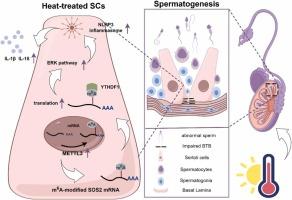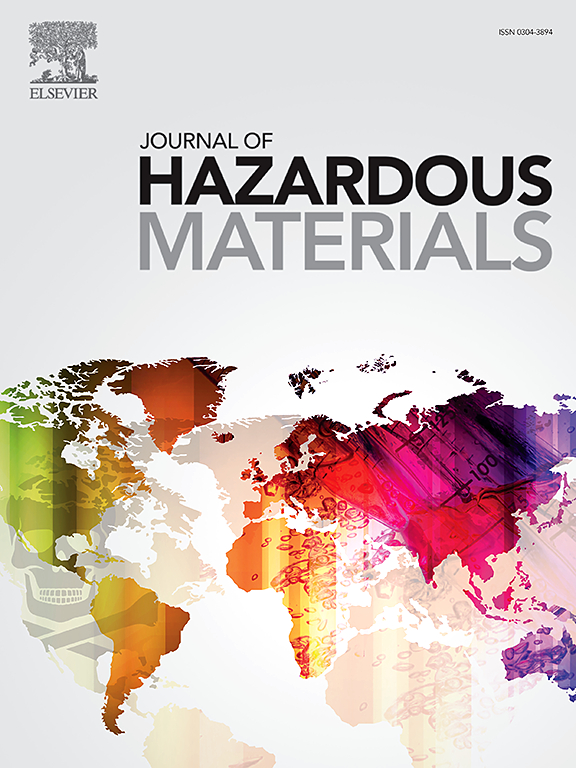Heat stress enhances the expression of METTL3 to mediate N6-methyladenosine modification of SOS2 and NLRP3 inflammasome activation in boar Sertoli cells
IF 12.2
1区 环境科学与生态学
Q1 ENGINEERING, ENVIRONMENTAL
引用次数: 0
Abstract
Heat stress negatively affects pig production by disrupting the immune homeostasis of Sertoli cells (SCs), which compromises sperm quality, culminating in male infertility. Herein, we aimed to study the mechanism by which the NLRP3 inflammasome is activated by heat stress through N6-methyladenosine (m6A) modification regulation in SCs. Initially, it was found that heat stress (44°C, 30 min) markedly activated ERK1/2 signaling, which subsequently promoted NLRP3 inflammasome activation and inflammatory cytokine release from SCs. Then, using an m6A dot-blot assay, m6A sequencing, and methylated RNA immunoprecipitation, we found that heat stress augmented the level of m6A modification in SCs, and METTL3 augmented the m6A modification of mRNA encoding SOS Ras/Rho guanine nucleotide exchange factor 2 (SOS2), a key activator of the ERK pathway. Furthermore, YTHDF1 recognized and bound to the m6A-modified SOS2 mRNA to enhance its translation efficiency, ultimately triggering ERK1/2 signaling activation. In vivo experiments demonstrated that heat stress-induced decline in semen quality in mice was associated with elevated levels of m6A modifications in the testis and NLRP3 inflammasome activation. However, the damage caused by heat stress could be attenuated by intraperitoneal injection of S-Adenosylhomocysteine (SAH), a specific methyltransferase inhibitor. Our results emphasize the critical roles of m6A in regulating NLRP3 inflammasome activation under heat stress, identifying a novel therapeutic avenue to address heat stress.

求助全文
约1分钟内获得全文
求助全文
来源期刊

Journal of Hazardous Materials
工程技术-工程:环境
CiteScore
25.40
自引率
5.90%
发文量
3059
审稿时长
58 days
期刊介绍:
The Journal of Hazardous Materials serves as a global platform for promoting cutting-edge research in the field of Environmental Science and Engineering. Our publication features a wide range of articles, including full-length research papers, review articles, and perspectives, with the aim of enhancing our understanding of the dangers and risks associated with various materials concerning public health and the environment. It is important to note that the term "environmental contaminants" refers specifically to substances that pose hazardous effects through contamination, while excluding those that do not have such impacts on the environment or human health. Moreover, we emphasize the distinction between wastes and hazardous materials in order to provide further clarity on the scope of the journal. We have a keen interest in exploring specific compounds and microbial agents that have adverse effects on the environment.
 求助内容:
求助内容: 应助结果提醒方式:
应助结果提醒方式:


